
Some homes feel off before you realize why. The laughter sounds rehearsed, the air feels heavier, and the smallest things seem slightly out of rhythm. You sense something’s changed, but can’t quite name it. Environments absorb emotion, and when someone’s hiding pain, their space starts speaking for them. The clues are rarely obvious. Keep reading to see what your friend’s home might be trying to tell you.
Unwashed Dishes Piling Up
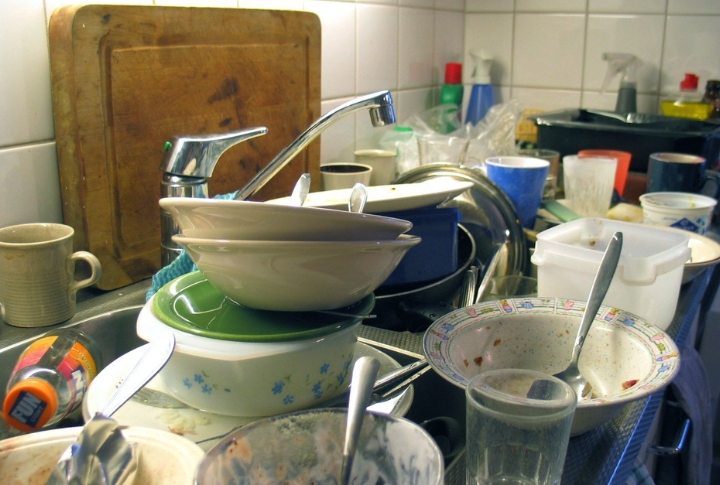
It always starts with “I’ll wash them later,” and somehow, later turns into a full-blown dish mountain. That pile can say a lot about how tired someone feels inside. When life feels heavy, even soap suds seem like too much effort.
Ignored Mail And Unpaid Bills

You know it’s bad when the mail pile starts looking like modern art. Those unopened envelopes might scream “procrastination,” but they also whisper “overwhelm.” As the brain’s overloaded, paperwork feels like an extreme sport. It’s less about neglect and more about mental bandwidth hitting zero.
Nearly Empty Fridge

Sometimes an almost-empty fridge tells the whole story. Since someone’s emotionally worn down, everyday routines like buying food and cooking lose priority. Those few jars and leftovers become quiet markers of fatigue, small signs that energy and motivation have both run thin.
Spoiled Groceries Or Expired Food

The milk’s gone rogue, the spinach turned into an abstract painting, and no one’s surprised. Food retires early when burnout moves in. Fridges like this don’t lie. Each expired label is a timestamp on exhaustion, proof that decision fatigue can reach all the way to the vegetable drawer.
Unmade Bed With Worn Bedding
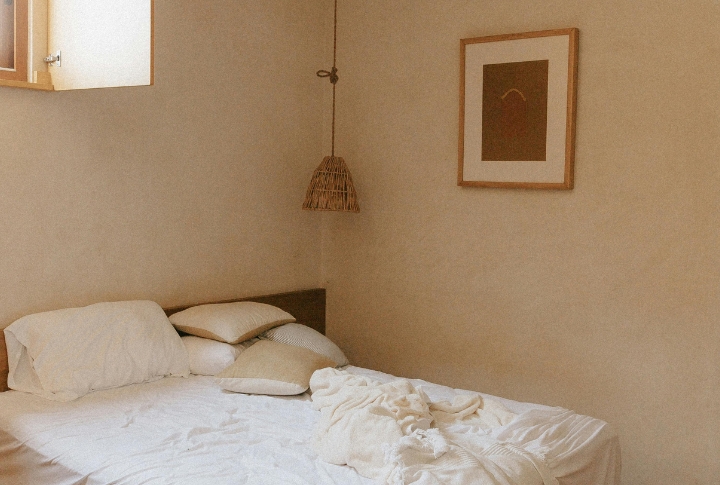
Rumpled sheets tell the story that words don’t. A bed left unmade often signals mental fatigue rather than poor habits. The visible mess mirrors an invisible struggle. Burnout turns even the smallest tasks into uphill battles, leaving bedding untouched and comfort neglected.
Laundry Piles Left Unfolded
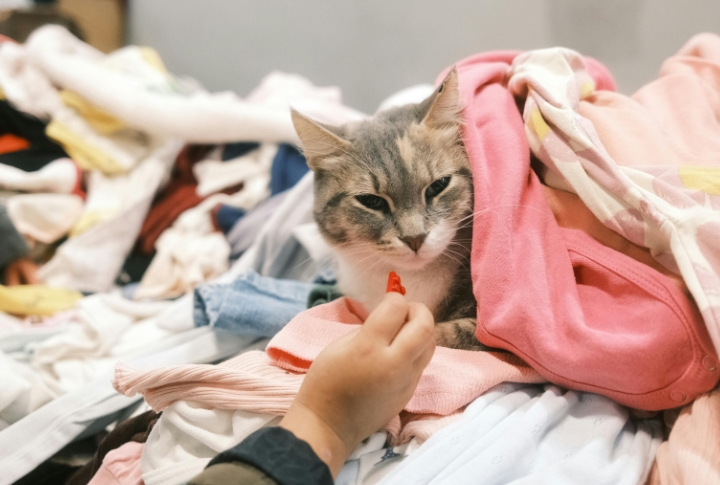
Clean laundry deserves better than living on “that one chair.” However, as you’re drained, folding clothes feels like climbing Everest in socks. Those piles aren’t a fashion statement anymore. They’re just physical proof that life’s been… a lot. And honestly, we’ve all been there.
Rooms Kept Dark And Closed Off
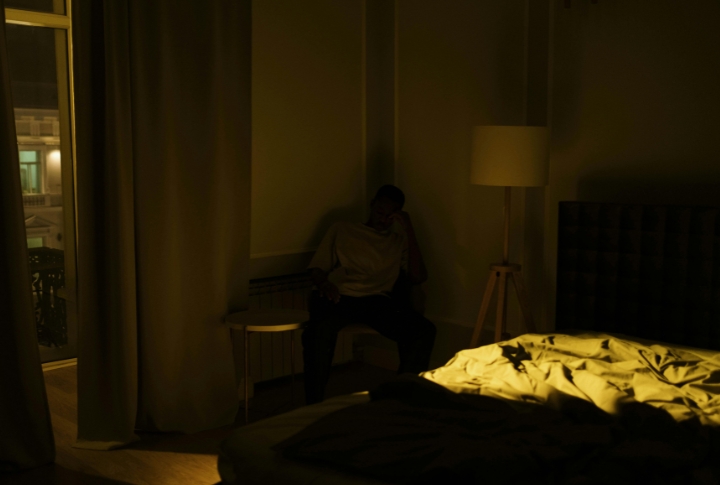
If the curtains haven’t opened in days, it’s probably not an interior-design choice. Darkness becomes the unofficial roommate of fatigue. Over time, the shadows start mirroring the heaviness inside and create a feedback loop where fatigue thrives and brightness feels almost foreign.
Takeout Containers And Fast-Food Packaging
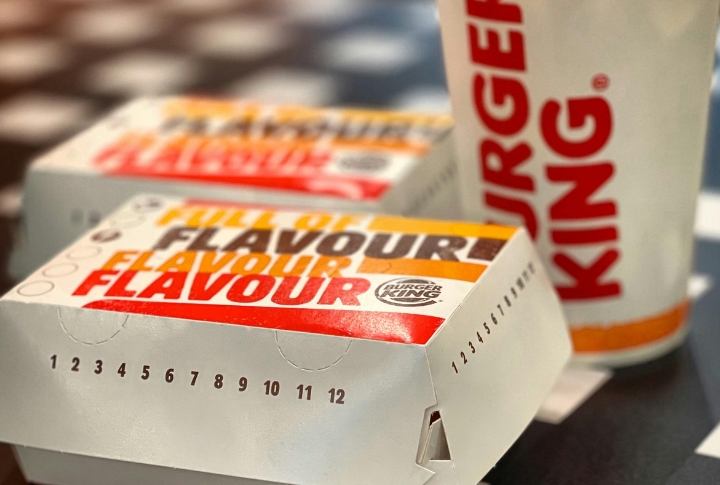
Count the takeout containers and you’ll count the rough days your friend won’t mention. Fast-food packaging piles up because even boiling water feels like too much effort. The kitchen stops functioning normally when someone’s running on empty emotionally.
Neglected Personal-Care Basics
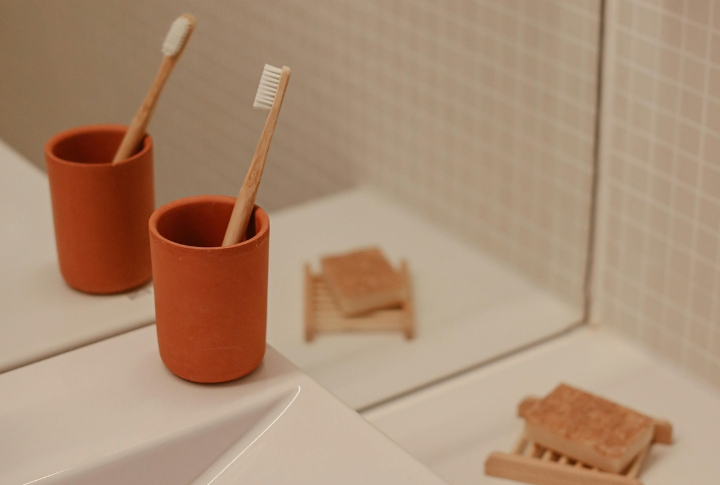
That untouched toothbrush and empty soap dish say more than you think. Skipping the basics doesn’t mean someone’s lazy. In fact, it means they’re running on emotional fumes. It’s wild how brushing your teeth can feel like a full workout if life gets too heavy.
Overgrown Yard Or Dying Houseplants
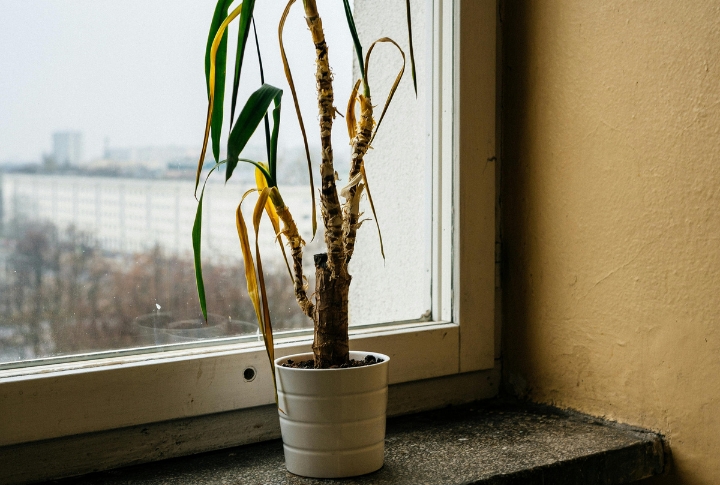
Notice the brown leaves and overgrown weeds? Plants need regular attention, which is exactly what your friend can’t give right now. A neglected yard or dying houseplants show someone’s too drained to maintain even basic routines. Those struggling plants are basically asking for help on their owner’s behalf.
Scattered Medication Bottles

Nothing says “life’s a lot right now” like prescription bottles rolling across every flat surface. That clutter is a snapshot of someone trying to keep things together while the wheels wobble. A scattered lineup of meds usually signals exhaustion.
Mirrors Covered Or Avoided

A dusty mirror or one facing the wall might seem like nothing, but it’s actually a red flag. Avoiding reflections usually means someone can’t handle seeing themselves right now. Self-image issues or emotional pain make looking in the mirror unbearable. The avoidance is quiet, but the struggle behind it isn’t small.
Broken Appliances Or Ignored Repairs
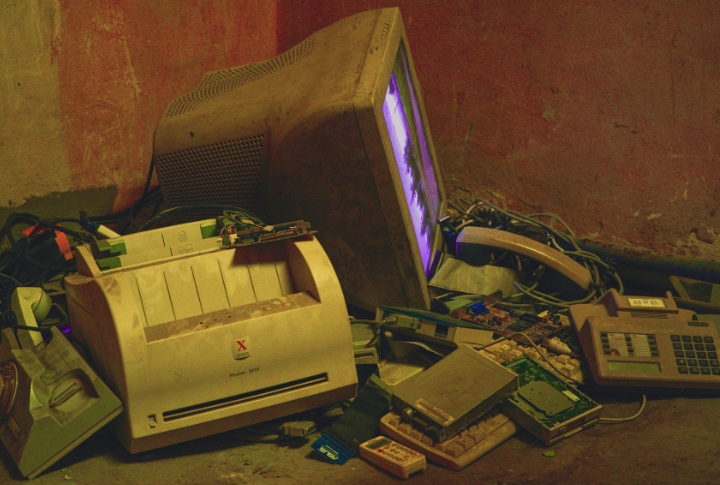
The flickering light or broken handle is emotional shorthand for “I’ll deal with it later.” When life’s overwhelming, fixing small things feels like climbing Everest. The toaster might be fine being broken; the person living with it, not so much.
Minimal Or Makeshift Furniture
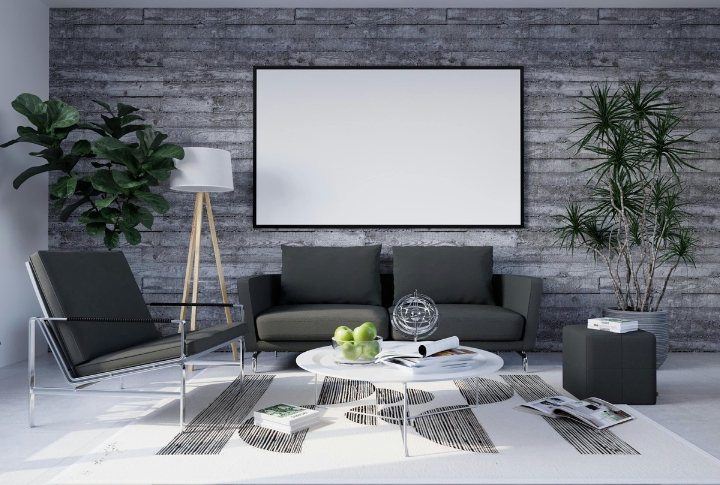
It starts with one decision: “The floor’s fine.” Soon, the room turns practical. This isn’t minimalist pride at all. It’s a quiet surrender. While energy fades, comfort becomes secondary, and the space turns into a reflection of emotional weariness rather than aesthetic choice.
Missing Household Essentials
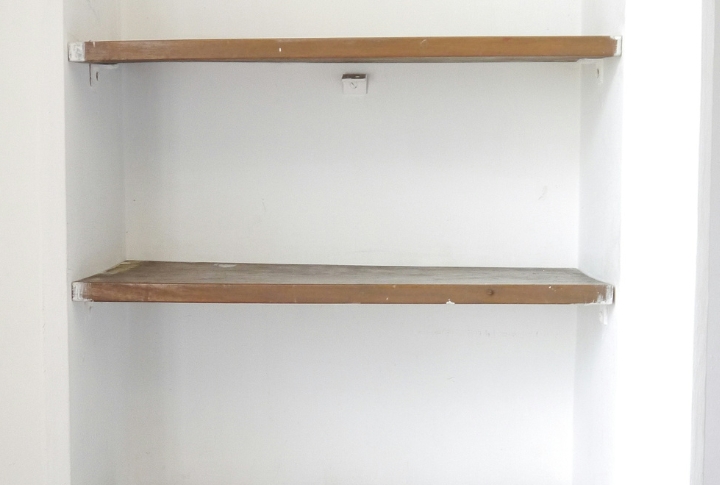
Running out of toilet paper once feels harmless; running out of everything hints at burnout. Forgotten basics like soap or detergent often show that energy’s hit rock bottom. The shelves stay empty because daily upkeep has quietly fallen off the priority list.
Clutter Mixed With Hoarding
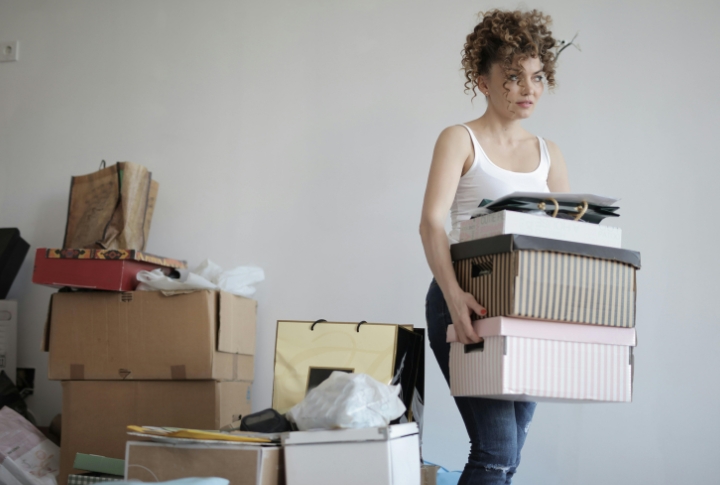
Everyone owns a junk drawer, but some just expand theirs into entire rooms. Clutter paired with overstocked shelves usually signals mental clutter, too. Buying or keeping extras offers a brief sense of control, a kind of comfort that leaves more mugs than peace of mind.
Personal Photos Or Art Removed
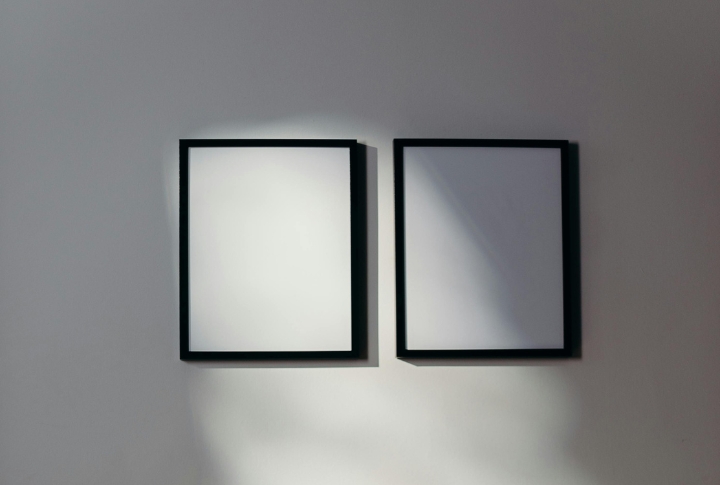
Bare walls where photos used to hang tell a story nobody’s saying out loud. Taking down family pictures or personal art often happens when someone’s withdrawing emotionally. They can’t handle the reminders of better times, so they remove them instead of explaining what’s really going on inside.
Clothes Left Where Taken Off
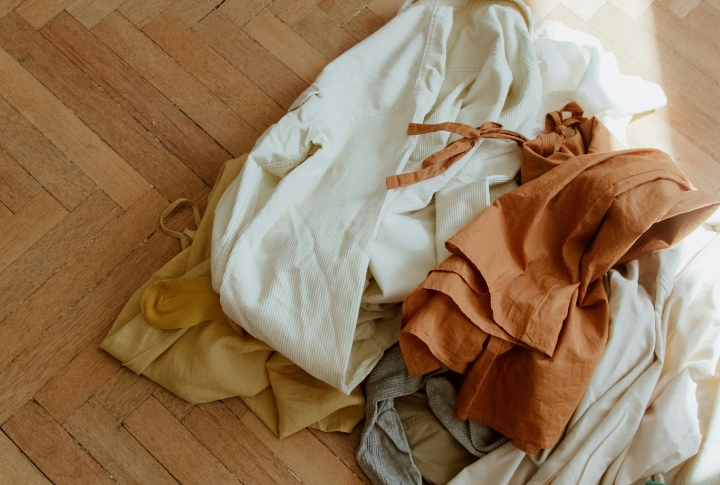
The chair becomes a second closet, the floor a backup shelf. Nothing’s dirty, nothing’s put away—it all just stays. Those forgotten piles quietly reflect burnout creeping in, a wordless signal that focus and emotion have packed up for the night.
Kitchen Stocked Only With Instant Meals

A pantry full of ramen and microwave dinners? That’s not poor nutrition, but survival engineering. Instant meals take over when energy’s gone and stress is high. It’s the culinary version of “just trying to make it through the week.”
Excessive Bottles, Cans, Or Snack Wrappers
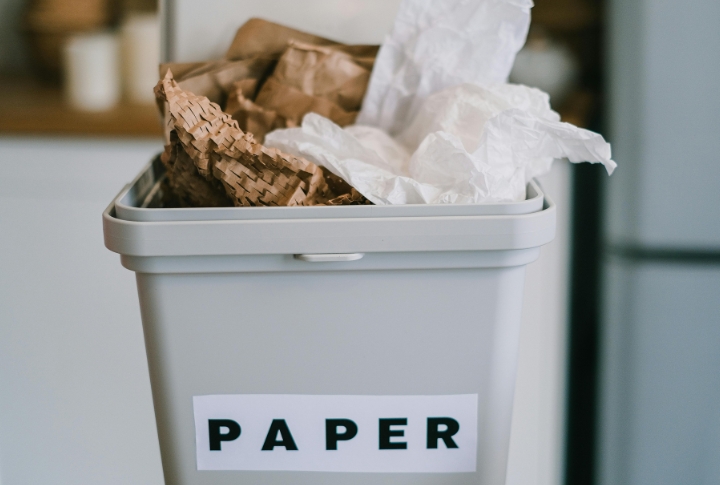
The counter fills with cans, the trash with wrappers. Each piece looks harmless until the pile starts telling a story of overextended days and borrowed energy. Comfort eating or drinking leaves its own quiet archive: burnout disguised as harmless routine.

